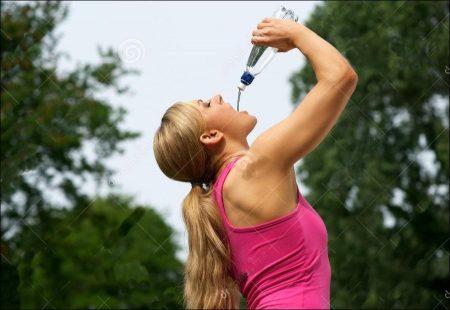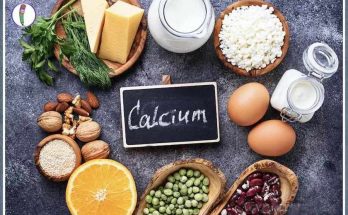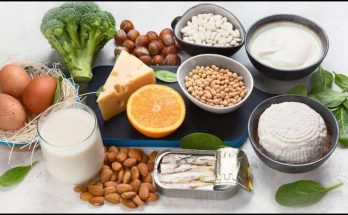Myth: Energy drinks have “high” or “dangerous” amounts of caffeine.
Fact: The vast majority of energy drinks consumed in the United States – including Monster, Red Bull, Rockstar, AMP, Full Throttle and NOS – have similar or lower levels of caffeine than home-brewed coffee which many Americans enjoy on a daily basis. And many contain about half the caffeine of a similarly-sized coffeehouse coffee. A 16 fluid ounce energy drink typically contains between 160 and 240 milligrams of caffeine, while the same size coffeehouse coffee contains around 300 to 330 milligrams. Moreover, caffeine has been safely consumed around the world for hundreds of years.
Myth: With the recent growth of the energy drink category, Americans are getting dangerous amounts of caffeine in their diet.
Fact: The FDA commissioned an in-depth analysis of caffeine consumption among the U.S. population in 2009, which was then updated in 2010. This report concludes that, despite the growth of energy drinks in the marketplace, the average amount of caffeine consumed by the adult U.S. population remains consistent with past FDA estimates – at approximately 300 milligrams of caffeine daily.
The report also found that coffee and tea remain the primary source of caffeine in the American diet. Furthermore, that same report indicated that teens and young adults ages 14 to 21 years consume, on average, approximately one-third the amount of caffeine as people over 21 – about 100 milligrams per day – and that most of their caffeine consumption is from beverages other than energy drinks.
Myth: Energy drinks aren’t regulated.
Fact: Energy drinks, their ingredients and labeling are regulated by the U.S. Food and Drug Administration (FDA)— even those that are labeled as a dietary supplement using a Supplement Facts panel, instead of a conventional food using a Nutrition Facts panel. And, as with most consumer products, energy drink advertising is subject to oversight from the U.S. Federal Trade Commission (FTC).
Myth: Youth are major consumers of energy drinks.
Fact: A report on caffeine consumption among the U.S. population commissioned by FDA in 2009, and then updated in 2010 and again in 2012, indicated that teens and young adults ages 14 to 21 years consume, on average, approximately one-third the amount of caffeine as people over 21 – about 100 milligrams per day – and that most of their caffeine consumption is from beverages other than energy drinks (Somogyi 2012). Importantly, the 2012 report also showed that the average amount of caffeine consumed has remained constant.
Myth: There’s no way for a consumer to know how much caffeine is in an energy drink.
Fact: There are several ways to find out exactly how much caffeine is in an energy drink. Most mainstream energy drinks voluntarily list the total amount of caffeine from all sources right on the label. In addition, this information is readily available on company or product websites, as well as through their toll-free numbers.
Myth: Taurine is a stimulant.
Fact: Taurine is an amino acid that is naturally found in the human body, as well as in common food items such as seafood, scallops and poultry. Because taurine exists naturally in breast milk, it also is used as an additive in infant formula, one of the most researched products sold.
Myth: Guarana is a dangerous drug.
Fact: Guarana, another ingredient found in some energy drinks, is a nut-like seed from plants native to South America and is a natural source of caffeine. Guarana contributes caffeine to beverages – just as coffee, tea, cocoa, yerba mate or other natural sources of caffeine do.
Myth: Energy drinks are a new product about which too little is known.
Fact: Energy drinks have been enjoyed safely by millions of people around the world for more than 25 years, and in the United States for more than 15 years.
Myth: Energy drink companies target children.
Fact: Energy drinks are not intended for children. The leading energy drink makers have voluntarily pledged not to market these products to children or sell them in K-12 schools. In addition, these companies voluntarily display an advisory statement on energy drink packaging, stating that the product is not intended (or recommended) for children, pregnant or nursing women, and persons sensitive to caffeine.
Myth: Because of the caffeine content, combining energy drinks with alcohol is more dangerous than consuming alcohol alone.
Fact: The United Kingdom’s Committee on Toxicology (COT), an independent committee of experts that provides advice to agencies such as the Food Standards Agency (FSA), was asked by FSA to conduct an in-depth review of alcohol and caffeine. In December 2012, COT published a report which concluded that “the current balance of evidence does not support a harmful toxicological or behavioral interaction between caffeine and alcohol.” Nevertheless, leading energy drink makers have voluntarily pledged not to make claims that consuming alcohol with energy drinks counteracts the effects of alcohol.
Myth: Energy drinks are driving an increase in emergency room visits.
Fact: Although a recent government report showed that of the more than 136.1 million visits made to emergency room facilities, 20,783 involved energy drinks – either as the alleged reason or a contributing factor for the visit – in fact, as the FDA itself acknowledged, no conclusion about causation can be drawn from these reports.
This statistic is of concern as our industry is committed, first and foremost, to the safety and integrity of its beverages. Unfortunately, it is difficult to draw hard conclusions about the role of energy drinks in these hospital visits because the report did not provide information on the general health of the people involved or other circumstances which may have contributed to their hospital visit.
Nonetheless, our industry takes this information seriously and will continue to safeguard consumers through voluntary steps such as listing caffeine content on our product labels and displaying an advisory statement reminding consumers that energy drinks are not intended for children or recommended for pregnant or nursing women or other people sensitive to caffeine.
Visits: 85



